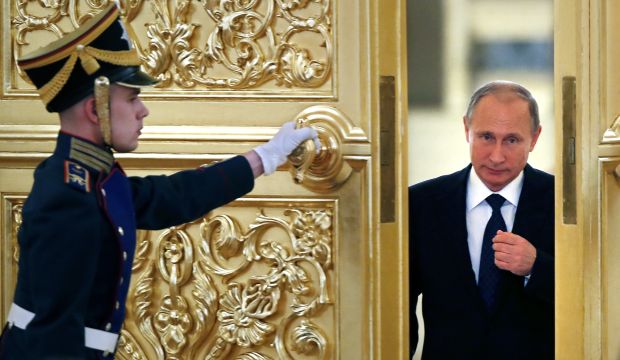It must be admitted that Russian President Vladimir Putin has managed to put Moscow on the world’s political map once again after almost three decades of marginalization by the new world order established after the collapse of the former Soviet Union.
It is natural that Monday’s meeting between Putin and US President Barack Obama, held on the sidelines of the United Nations General Assembly, dominated the world’s attention, since the two powers differ markedly on several issues, particularly the crises in Syria and Ukraine.
On the eve of the two leaders’ meeting, Moscow boosted its bargaining position by signing an agreement with Baghdad, Tehran, and Damascus to exchange intelligence about the Islamic State of Iraq and Syria (ISIS), and announced that a meeting of the major regional actors, as well as Russia and the US, will be held next month regarding Syria. For his part, the US president has confirmed his readiness to work with Russia and Iran on Syria.
Clearly, Russia has found in the Syrian crisis an opportunity to make a forceful return to the region, a battlefield for the former Soviet Union and the US during the 1960s and 1970s.
Are we to witness a return to the Cold War? It is a mistake to fall under this delusion. It is true that Moscow sent attack aircraft and weapons to Syria’s Bashar Al-Assad—creating its first military presence in the region since Egypt’s former president Anwar Sadat ejected Soviet military advisers before the 1973 October War with Israel—but Putin’s televised remarks on Monday that no Russian troops would be deployed to Syria signal his intention not to become directly involved there.
In fact, the worst scenario the region faces right now is that it becomes an arena for a new global conflict. The best thing those participating in next month’s meeting on Syria can do is solidify a vision regarding a solution to the Syrian crisis and be prepared to send forces in case they are needed to protect or impose peace. Military presence in Syria should not be limited to Iran and Turkey only.
It should be admitted that politics is the art of the possible. This is precisely the reason behind the stark shift in the West’s stance on Syria. With most Western powers making the elimination of extremist groups rather than toppling the Syrian government a priority, they have announced that Assad can have a role in a transitional government, contradicting previous statements that he can have no role in a future Syria.
Who facilitated the spread of extremist militants in Syria, triggering the largest displacement of people since the Second World War? This question is a thing of the past. What is important now is how to get those militants out of Syria before they destroy everything with their nihilist ideology. Practically speaking, when the war there stops and the search for a political solution begins, Assad will be in a weaker position than the one he is in now and will not be able to shirk his responsibility for what has befallen Syria in the past four years.
Moscow can help find a way out of the Syrian crisis if it cooperates with Washington to impose a transition process there. It seems that there are parties in Washington that are already preparing for such a transition. It is unreasonable that US-trained fighters have surrendered their weapons to the Al-Nusra Front, Al-Qaeda’s affiliate in Syria, only two days after Washington announced its entry into Syria. Making public this supposedly confidential information is a strange thing to do in the first place.
That Moscow wants to play a positive role in the Syrian crisis and fears that extremists from the former Soviet Union republics will travel to fight in Syria should not harm the Arab sides seeking to protect Syria. In fact, the Russian-proposed meeting will be an opportunity to achieve just that.
